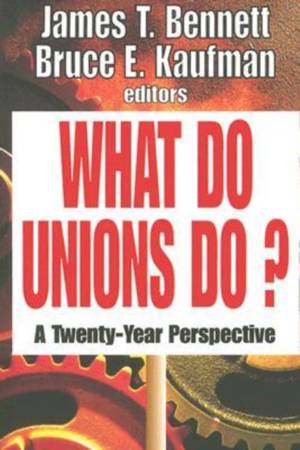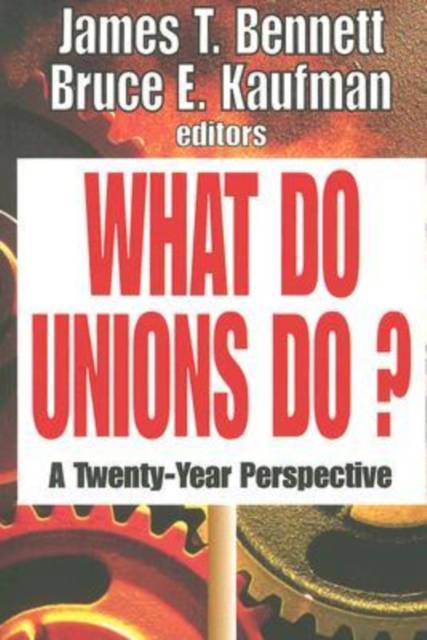
- Afhalen na 1 uur in een winkel met voorraad
- Gratis thuislevering in België vanaf € 30
- Ruim aanbod met 7 miljoen producten
- Afhalen na 1 uur in een winkel met voorraad
- Gratis thuislevering in België vanaf € 30
- Ruim aanbod met 7 miljoen producten
Zoeken
€ 90,45
+ 180 punten
Uitvoering
Omschrijving
One of the best-known and most-quoted books ever written on labor unions is What Do Unions Do? by Richard Freeman and James Medoff. Published in 1984, the book proved to be a landmark because it provided the most comprehensive and statistically sophisticated empirical portrait of the economic and socio-political effects of unions, and a provocative conclusion that unions are on balance beneficial for the economy and society.The present volume represents a twentieth-anniversary retrospective and evaluation of What Do Unions Do? The objectives are threefold: to evaluate and critique the theory, evidence, and conclusions of Freeman and Medoff; to provide a comprehensive update of the theoretical and empirical literature on unions since the publication of their book; and to offer a balanced assessment and critique of the effects of unions on the economy and society. Toward this end, internationally recognized representatives of labor and management cover the gamut of subjects related to unions.Topics covered include the economic theory of unions; the history of economic thought on unions; the effect of unions on wages, benefits, capital investment, productivity, income inequality, dispute resolution, and job satisfaction; the performance of unions in an international perspective; the reasons for the decline of unions; and the future of unions. The volume concludes with a chapter by Richard Freeman in which he assesses the arguments and evidence presented in the other chapters and presents his evaluation of how What Do Unions Do? stands up in the light of twenty years of additional experience and research. This highly readable volume is a state-of-the-art survey by internationally recognized experts on the effects and future of labor unions. It will be the benchmark for years to come.
Specificaties
Betrokkenen
- Auteur(s):
- Uitgeverij:
Inhoud
- Aantal bladzijden:
- 662
- Taal:
- Engels
Eigenschappen
- Productcode (EAN):
- 9781412805940
- Verschijningsdatum:
- 1/02/2007
- Uitvoering:
- Paperback
- Formaat:
- Trade paperback (VS)
- Afmetingen:
- 153 mm x 226 mm
- Gewicht:
- 948 g

Alleen bij Standaard Boekhandel
+ 180 punten op je klantenkaart van Standaard Boekhandel
Beoordelingen
We publiceren alleen reviews die voldoen aan de voorwaarden voor reviews. Bekijk onze voorwaarden voor reviews.











